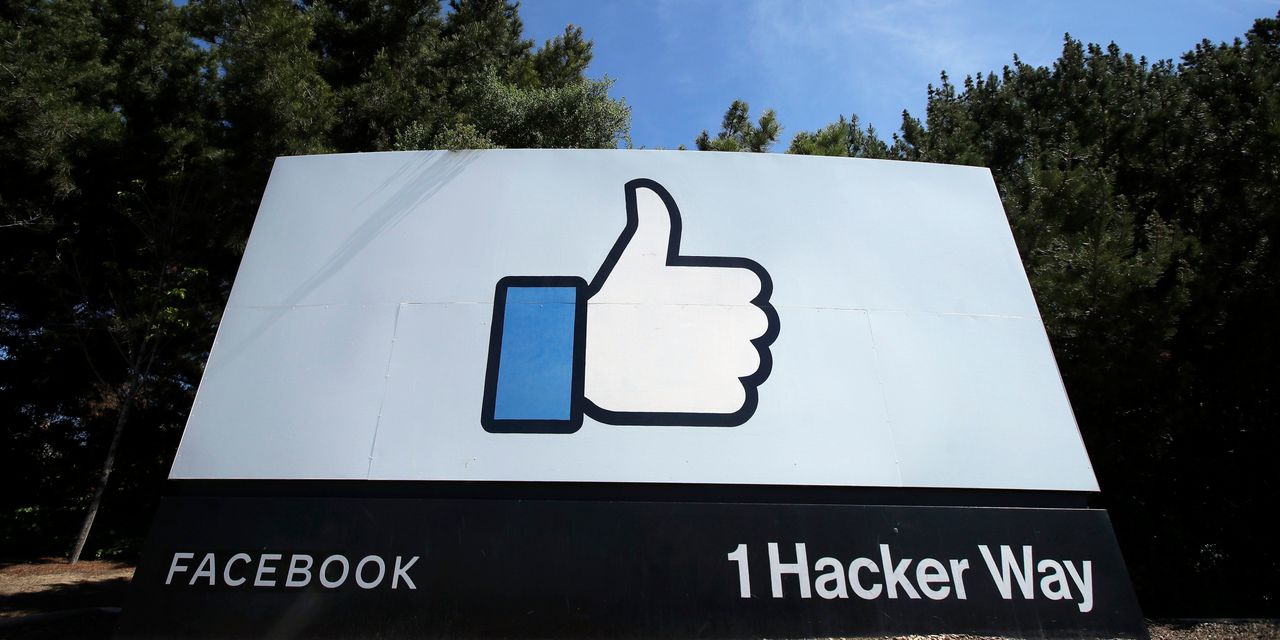Critics of big tech firms cheered after prosecutors and lawmakers made moves against
Facebook Inc.
FB -1.05%
Recent developments have underscored the challenges in using courts and Congress to reshape those businesses.
U.S. District Judge
James Boasberg
ruled Monday that a Federal Trade Commission lawsuit was “legally insufficient,” saying the regulator didn’t show enough proof that Facebook was a monopoly and that its practices harmed competition. In another setback, the judge dismissed the case brought against Facebook by 46 states on grounds that, among other things, the attorneys general waited too long to bring their claims.
Lawmakers in Washington, meanwhile, are considering the path forward after a bruising battle last week to advance bills aimed at strengthening tech antitrust enforcement. Many business friendly Democrats are under pressure to delay or dilute the bills—which could facilitate the breakup of companies such as Facebook and
Amazon.com Inc.
—as are House Republicans.
“Anyone who thought this was going to be easy and quick should probably step back…the law is tough, the politics are tough,” said
Harry First,
an antitrust-law professor at New York University who worked on the states’ litigation against
Microsoft Corp.
more than 20 years ago.
Judge Boasberg ruled that the FTC didn’t show enough evidence that Facebook had monopoly power in the market for personal social-networking services. He also said that there is nothing necessarily unlawful about Facebook having a policy of restricting access to its tools and user data. The ruling left open the possibility that the federal plaintiffs could refile their case, but it illustrates how antitrust-law standards can be tough for regulators to meet.
Even if there is a public perception that tech companies are too big, “what antitrust law does is put to the test even things…that people seem to agree on,” said
David Olson,
an associate law professor at Boston College.
Several House members said the legal developments show the need for their proposed legislation to update antitrust laws for the internet age. Measures adopted by the House Judiciary Committee last week aim to block large technology platforms from favoring their own products and services, make it easier for users to migrate their data from one platform to another, prevent dominant platforms from killing off potential rivals through acquisitions, and make it easier for regulators to hive off operations of tech companies.
Reps.
Jerrold Nadler
(D., N.Y.) and
David Cicilline
(D., R.I.), the chairmen of the House Judiciary Committee and the House antitrust subcommittee, respectively, said those proposals are important to “address anticompetitive mergers and abusive conduct.”
Facebook has disputed claims from the FTC and lawmakers, saying that it competes fairly “to earn people’s time and attention.”
Bernstein analyst
Mark Shmulik
said the recent ruling shows the FTC’s case against Facebook was “weak to begin with” and the dismissal doesn’t change his investment thesis on the company, which recently crossed the $1 trillion market-cap threshold and whose stock he says is undervalued.
“They went out of their way to define a new market and excluded companies I would deem competitors,” he said of the government. “The judge recognized that.”
Even some advocates of change say the path ahead for the antitrust overhaul is rocky.
“There was disagreement among the Democrats in the committee, and not every Democrat voted for it, and some very senior members oppose [the bills],” House Majority Leader
Steny Hoyer
(D., Md.) said Tuesday. “Right now they’re not ready for the floor, and I don’t want to make a prediction as to when they’re going to be ready.”
Lawmakers also may seek to coordinate with the narrowly divided Senate, where Republicans have more influence, Mr. Hoyer said. Republicans often view the current rules more favorably and oppose more stringent standards as a potential source of economic uncertainty and unfairness.
For their part, the big tech companies also are lobbying hard to win over more allies in the House, ahead of new efforts to pass the bills, which lawmakers and lobbyists say could potentially happen in September.
One measure targeted for erasure by lobbyists is the bill that could potentially break up companies. It passed out of the committee on a 21-20 vote, a signal of its vulnerability.
“This restructuring by fiat is one of the most serious regulatory threats the industry has ever faced,” said
Matt Schruers,
president of the Computer and Communications Industry Association, a tech advocacy group, referring to the legislation called the Ending Platform Monopolies Act.
Some lawmakers representing districts in California, where companies such as Facebook and
Alphabet Inc.’s
Google are based, are wary of the impact the proposed legislation could have. During the House committee hearing,
Rep. Zoe Lofgren
(D., Calif.), who represents part of Silicon Valley, said the bill “would essentially, metaphorically, take a grenade and just roll it into the tech economy and blow it up and see what happens.”
Big Tech’s Battles
More coverage of antitrust and regulation efforts, selected by the editors
—Lindsay Wise and Sarah E. Needleman contributed to this article.
Write to John D. McKinnon at john.mckinnon@wsj.com
Copyright ©2020 Dow Jones & Company, Inc. All Rights Reserved. 87990cbe856818d5eddac44c7b1cdeb8













































